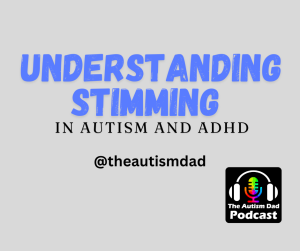Parenting is one of life’s most rewarding journeys, but it demands extraordinary reserves of energy, patience, and resilience. In the midst of the daily whirlwind of responsibilities, parents often neglect their own well-being, which can have far-reaching consequences. Self-care is not a luxury; it’s a necessity that directly impacts both personal and parental effectiveness.
While the concept of self-care is widely discussed, its true power lies in its ability to equip parents with the mental, emotional, and physical resources needed to navigate the challenges of raising a family. Prioritizing self-care helps parents build the resilience needed to manage stress and anxiety, creating a nurturing environment where their children can thrive.
So, what does effective self-care look like for busy parents? And what are the consequences of neglecting this crucial aspect of well-being? Let’s delve into the multifaceted role of self-care and explore practical strategies for making it a sustainable part of the parenting journey.

The Dual Role of Self-Care in Personal and Parental Life
Self-care significantly enhances both individual well-being and parenting effectiveness. Studies have shown that parents who engage in regular self-care routines experience improved mental health outcomes, reduced stress levels, and increased overall life satisfaction.
On a personal level, self-care practices such as exercise, mindfulness, and leisure activities promote emotional regulation, reduce burnout risk, and foster a sense of calm and balance. These benefits directly translate into more patient, present, and engaged parenting.
Additionally, self-care allows parents to model healthy behaviors for their children. Children who witness their parents prioritizing self-care are more likely to develop positive coping strategies and a mindset that values personal well-being. Adding supplements like Stress Support can further enhance a parent’s ability to handle daily stressors, naturally supporting their self-care efforts.
By embracing self-care, parents not only improve their own mental health but also lay the foundation for their children’s emotional intelligence and resilience. Parents who prioritize self-care are better equipped to manage the daily stressors and anxieties that come with raising children. By carving out time for activities that rejuvenate their spirits, such as exercise, hobbies, or simply moments of quiet reflection, parents can mitigate the risk of burnout and cultivate resilience in the face of challenges.
Moreover, investing in self-care isn’t just about the present—it’s an investment in long-term well-being, safeguarding against the development of addiction and mental health issues down the road.
Practical Self-Care Strategies for Busy Parents
Self-care can seem daunting for parents juggling multiple responsibilities. However, incorporating self-care into daily routines doesn’t have to be overwhelming. The key is to start small and focus on achievable goals that align with your preferences and schedule.
Here are some practical self-care strategies for busy parents:
Micro-moments of mindfulness: Take a few deep breaths, engage in brief meditation, or practice gratitude exercises during pockets of downtime throughout the day.
Physical activity: Incorporate movement into your routine, whether it’s a brisk walk, a yoga session, or a quick dance break with your kids.
Embrace hobbies and interests: Carve out time for activities that bring you joy and a sense of accomplishment, such as reading, gardening, or pursuing a creative hobby.
Connect with loved ones: Nurture relationships with friends, family members, or a support group, as strong social connections are crucial for emotional well-being.
Prioritize sleep and nutrition: Establish consistent sleep routines and make conscious choices about the foods you consume to promote overall physical and mental health.
Remember, self-care isn’t a one-size-fits-all approach. Experiment with different strategies and find what resonates with you. The key is to be intentional about carving out time for yourself, even if it starts with small, incremental steps.
The Impact of Neglected Self-Care on Family Dynamics
While the benefits of self-care are clear, understanding the potential consequences of neglecting this crucial aspect of well-being is equally important. When parents fail to prioritize their own self-care, they may experience burnout, leading to increased stress, irritability, and emotional exhaustion.
This ripple effect can significantly impact family dynamics and the overall well-being of children. Children who grow up with parents experiencing burnout may exhibit behavioral issues, emotional dysregulation, and academic challenges.
On the other hand, Parents who prioritize self-care handle the demands of parenting with more patience, empathy, and emotional availability. By nurturing their own well-being, they foster a positive family environment with healthy communication, resilience, and a deeper understanding of each other’s needs.
Here is a comparison table highlighting the potential impacts of prioritizing and neglecting self-care on family dynamics:
| Self-Care Status | Positive Outcomes | Negative Outcomes |
| Prioritizing Self-Care | Increased patience and emotional availability Positive role modeling for children Improved communication and conflict resolutionEnhanced family bonding and quality time Reduced risk of parental burnout | Increased irritability and emotional distance Negative coping mechanisms observed by children Strained communication and unresolved conflicts Decreased family time and connection Higher risk of parental burnout and stress-related health issues |
| Neglecting Self-Care | N/A (as this column represents neglecting self-care) | Increased irritability and emotional distance Negative coping mechanisms observed by children Strained communication and unresolved conflicts Decreased family time and connection Higher risk of parental burnout and stress-related health issues |
As the table illustrates, prioritizing self-care not only benefits parents individually but also creates a ripple effect of positive outcomes for the entire family unit.
Creating a Sustainable Self-Care Routine
Creating a sustainable self-care routine is crucial for maintaining long-term well-being and managing stress and anxiety. Here are some steps parents can take to create a self-care routine that adapts to changing family needs and challenges.
1. Identify your self-care needs: Reflect on activities or practices that help you recharge, relax, and find fulfillment. This can include physical, emotional, social, or spiritual dimensions of well-being.
2. Set realistic goals: Start small and gradually build up your self-care routine. Set achievable goals that align with your current lifestyle and commitments.
3. Schedule self-care time: Treat self-care appointments like any other important commitment: block off time in your calendar and communicate your needs to family members.
4. Involve your support system: Enlist the help of your partner, family members, or friends to create opportunities for self-care, such as taking turns caring for the children or sharing household responsibilities.
5. Be flexible and adaptable: As your family’s needs evolve, be prepared to adjust your self-care routine accordingly. Accept life’s fluidity and find creative ways to prioritize your well-being.
6. Celebrate small wins: Acknowledge and celebrate your self-care successes, no matter how small. This positive reinforcement will help sustain your commitment to self-care over time.
Remember, creating a sustainable self-care routine is an ongoing process that requires patience, self-compassion, and a willingness to experiment with different strategies until you find what works best for you and your family.
Conclusion
In the whirlwind of parenting responsibilities, self-care is often the first thing to be sacrificed. However, as discussed, self-care is not a luxury but a crucial element supporting both personal well-being and effective parenting.
By engaging in regular self-care practices, parents can:
– Manage stress and anxiety more effectively
– Cultivate emotional resilience and patience
– Model healthy coping strategies for their children
– Enhance family dynamics and strengthen relationships
– Reduce the risk of burnout and its associated negative impacts
Remember, self-care is not a one-time effort but an ongoing journey requiring commitment, adaptability, and self-compassion. By prioritizing their well-being, parents create a ripple effect of positive outcomes that benefit the entire family unit.
FAQs
- Why is self care important for parents?
Self-care is crucial for parents as it helps them maintain their physical, emotional, and mental well-being amidst the demands of parenting, reducing the risk of burnout and fostering a healthier family dynamic.
- How do parents take care of themselves?
Parents can prioritize self-care by carving out time for activities that recharge them, such as exercise, hobbies, spending time with friends, or engaging in relaxation techniques like meditation or mindfulness.
- How to improve parents’ mental health?
To enhance parents’ mental health, it’s essential to encourage open communication, seek support from friends, family, or professionals when needed, establish healthy boundaries, practice self-compassion, and prioritize self-care activities that promote relaxation and stress management.



